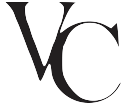As women age, they once again go through a shift in hormone levels. This change is called menopause and, on average, happens around 50 years old. Menopause affects many areas of the body and its functions. This includes sleep, mood, and hair changes, to vascular health. It is beneficial to know the relationship between menopause and varicose veins to ensure veins stay healthy.
What Is Happening During Menopause?
Menopause is a natural process women experience as they age. As the word “pause” indicates, menopause is when a woman has not had a menstrual cycle in 12 months. Women who have given birth and are breastfeeding may not have a menstrual cycle in this amount of time or longer. This break is not menopause, although there are many of the same symptoms that occur.
With age, the ovaries start producing less of the hormones estrogen and progesterone. These hormones control the sexual functions of menstruation and egg release. This decline can happen in a woman’s late 30s, causing fertility to decline. Eventually, the hormone amounts decrease enough that the ovaries stop producing fertile eggs.
There are a few causes of menopause not related to the natural decline of hormones.
- Hysterectomy: There are different types of hysterectomies, and not all will cause menopause. Hysterectomies that remove the ovaries, like the total hysterectomy and the bilateral oophorectomy, will cause immediate menopause. Without ovaries, there is no hormone production, as a result.
- Cancer Treatments: Chemotherapy and radiation therapy can cause menstruation to stop, inducing menopause. This halt may not always be a permanent biological change.
- Premature Menopause: This is known as primary ovarian insufficiency. Menopause occurs when the ovaries do not produce normal levels of estrogen and progesterone. Sometimes this can be caused by other underlying diseases.
Medical Complications
The decrease of estrogen and progesterone affects more than just sexual organs and function. One dangerous condition of menopause is related to vascular health and cardiovascular disease. As a result, menopause and varicose veins many times go hand in hand.
Estrogen and Progesterone
Estrogen and progesterone have a beneficial effect on veins and arteries at moderate levels. These hormones keep blood vessels flexible. When the vein can relax and expand as needed, there is decreased stress from blood flow changes. Without these hormones, veins can become brittle and weak. Brittle veins don’t function correctly, causing blood to pool and collect, causing further damage. As of 2019, around 31% of menopausal women have varicose vein formations.
It is important to note that higher estrogen levels also produce varicose veins from weakened vein valves. Hormonal birth control can raise levels. Before self-diagnosing and attempting to raise or lower hormone levels, consulting with a doctor and getting levels checked is crucial.
Weight Gain
Weight gain is another complication of menopause as the metabolism slows down. Subsequently, many women gain weight. Higher body weight puts more strain on blood vessels and arteries throughout the body. Consequently, increasing body weight can be another factor contributing to varicose veins appearing. The added pressure on veins makes it harder for blood to be pumped upward and back to the heart. As a result, Varicose veins commonly occur in the legs for this reason.

What You Can Do About Menopause and Varicose Vein Formation
During menopause, there are various ways to improve vascular health. These will decrease the chances of varicose veins forming and managing any veins that have already appeared.
- Exercise: Getting moving is great for your vascular health. It is essential to make low impact exercise a priority. Not only will it help improve varicose vein issues, but it should alleviate heavy legs, reduce venous ulcers, and help maintain a healthy weight.
- Compression Stockings: Wearing compression stockings daily can help veins get blood moving back up out of the legs. This simple tool can stop varicose veins from forming and alleviate symptoms of existing damaged veins.
- Hormone Replacement Therapy: HRT can relieve many symptoms of menopause like hot flashes, sleep issues, mood swings, and weakened veins. Prescribed HRT tablets, gels, skin patches, and implants can reduce the visibility of varicose veins.
- Healthy Eating: Choosing the right healthy foods can do wonders for vein health. Some of the best foods to eat are avocados, beets, asparagus, rosemary, ginger, apples, and buckwheat. These foods contain nutrients that are beneficial to vein function.
- Ligation and Stripping: This is the surgical tying of veins with possible removal. This procedure is a minimally invasive surgery to remove varicose veins and prevent them from reforming.
- Laser Treatment: This procedure uses heat from a laser to reduce varicose veins. The vein will close, and the body will reabsorb it.
- Sclerotherapy: Minimally invasive, this treatment involves solution injected into a vein to collapse and shrink varicose veins. In most cases, the vein will completely disappear.
- Microphlebectomy: Also known as ambulatory phlebectomy, is a minimally invasive surgical procedure commonly used to remove varicose veins located near the skin’s surface. During the procedure, small incisions are made through which the affected veins are gently extracted, typically under local anesthesia. This technique is favored for its effectiveness in improving both the aesthetic appearance of the legs and the discomfort caused by varicose veins, providing patients with a comprehensive solution to vein-related concerns.
The Vein Health Screenings Through Ultrasound
One method used to diagnose vascular health issues after menopause is through ultrasound. A vascular ultrasound is a non-invasive way to view circulation and blood flow. Sound waves create a real-time image to allow doctors to examine the health of veins through the skin.
By mapping blood vessels through ultrasound, a vascular surgeon can check for blockages, plaque development, blood clots, and other complications. Above all, it is vital to have varicose veins examined periodically to monitor for formations of more dire vascular health issues.
Moreover, correctly reading screenings and diagnosing a vascular disease is a skill only to be trusted to certified surgeons and labs. The Vein Centre is a certified facility for vein screening with experienced Registered Vascular Technologists.
At The Vein Centre, board certified vascular surgeons can help screen and identify possible vascular diseases related to menopause and varicose veins. Above all, each patient’s health is paramount, and identifying vein health issues and creating an appropriate treatment plan is a top priority. The Vein Centre offers multiple types of vein screenings and treatments for venous disease. If you are worried about menopause and varicose veins, we provide solutions.
Our offices are near Downtown Franklin, Mt. Juliet, Brentwood, and Nashville. Visit us in Franklin, Belle Meade, or Mt. Juliet, Tennessee. To schedule, please call us at 615.269.9007. We would be happy to answer any questions you may have about our vein services. We also offer treatment for men!



